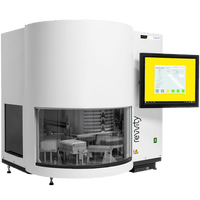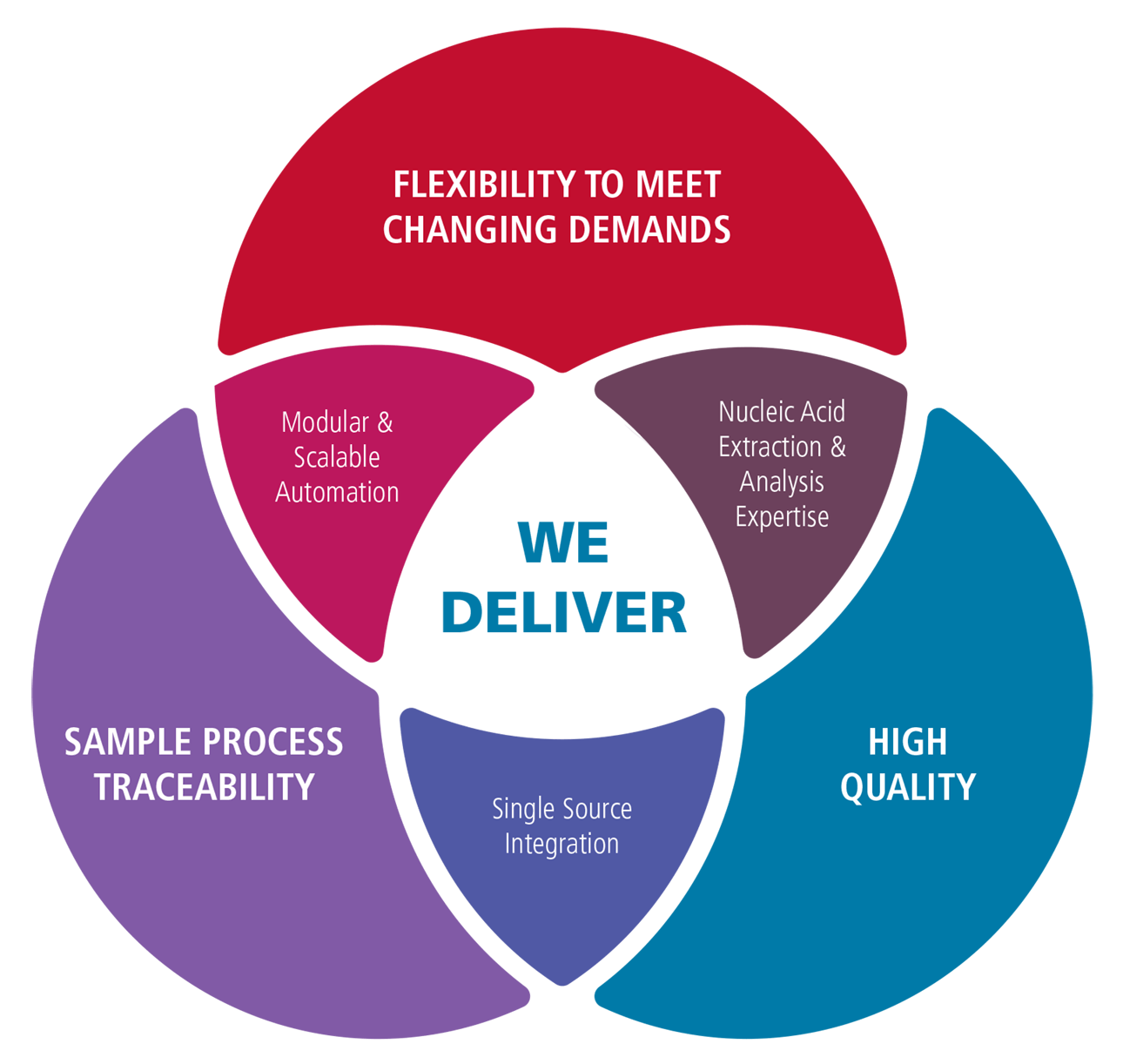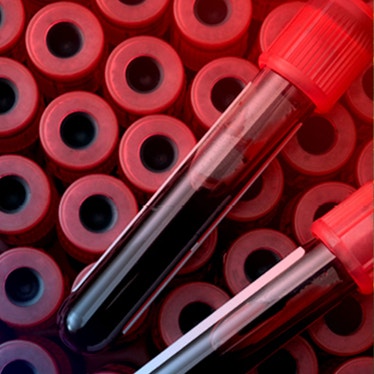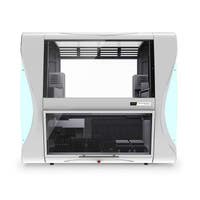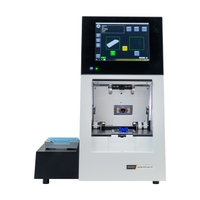Automation-enabled sample homogenization

Robust and reliable homogenization for various sample types
Biorepositories contain a wealth of sample types, each with specific homogenization needs to ensure maximal nucleic acid recovery, one of the most popular molecular analytes. We offer various homogenization mixtures for soft tissues, tough and fibrous tissues, and everything in between with our bead mill solutions and automated rotor-stator homogenizer workstations. We offer not only automated instruments, but a comprehensive offering ranging from critical consumables that ensure your supply stays healthy when growing your repository and accessories that provide the flexibility you might need to accommodate different tube formats and volume ranges for your biospecimen storage units.
Process and workflow efficiency
One of the challenges unique to biorepositories is the organization and long-term storage of its vast collection of samples, including, but not limited to tissues, fluids, cell, and microbial samples. As we talk about thousands, if not millions of samples in archive, sample management and chain-of-custody can be a challenge and requires attention months before sample expansion occurs. Not only does our portfolio of automation-enabled sample homogenizers allow for process optimization compared to more manual methods, but our Omni Bead Ruptor instrument has accessories that accommodates bead milling in some of the most popular 96-well, 2D barcoded storage tube system to ensure samples stay in the same tube through the homogenization process prior to being utilized in downstream applications.
Nucleic acid extraction expertise
Input agnostic nucleic acid extraction
Since the samples collected by biorepositories can be extremely diverse, the ability to isolate nucleic acids from an extensive range of sample types and volumes is critical. With the ability to extract nucleic acids from 10 µL to 10 mL of input samples, chemagic™ reagents and automation solutions are agnostic for both starting materials and type of nucleic acid extracted.
Nucleic acid quality is of major importance when conducting molecular analysis since factors causing degradation, presence of impurities, and enzymatic inhibitors, and long-term storage can have a significant impact on the quality of data. chemagen™ technology addresses the challenges associated with extraction while offering high recovery of clean nucleic acids suitable for long-term storage and a variety of demanding downstream applications. The shaking and centrifugation steps typically resulting in nucleic acid denaturation and fragmentation are avoided with chemagen™ technology. This automated magnetic separation procedure uses chemagen™ M-PVA magnetic beads to isolate and purify nucleic acids from human sample material. The beads have a high affinity for nucleic acids and low inhibitor binding, resulting in ultra-pure DNA and RNA. chemagen™ technology features magnetizable rotating rods, combining the transfer and suspension of magnetic beads to extract DNA, preventing further fragmentation. There are optimized protocols available for high molecular weight DNA as well as for cell free DNA (cfDNA). The nucleic acids isolated are compatible with a wide range of downstream applications including NGS, PCR, and MLPA.
Nucleic acid QC assessment expertise

Now you can eliminate your nucleic acid analysis bottlenecks with seamless analysis solutions proven and tested as components of our optimized biobanking workflow.
Fully automated blood fractionation
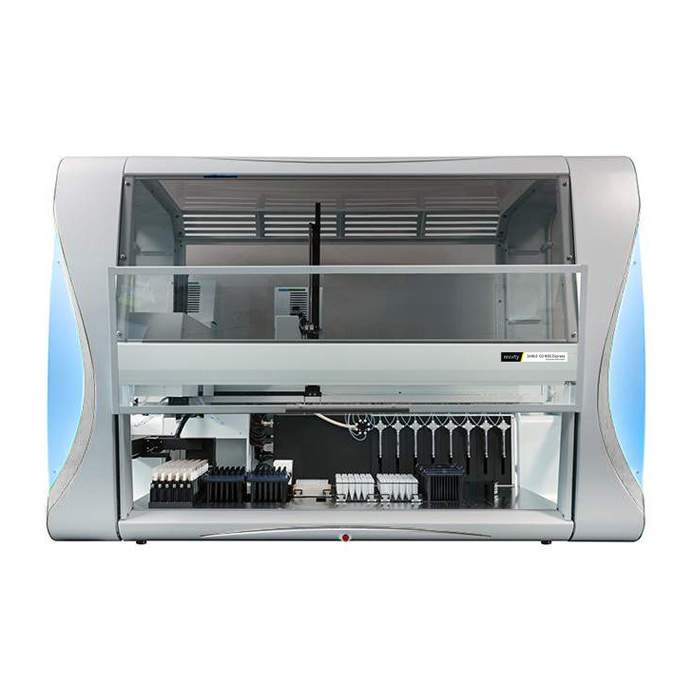
We further enable biobanks with the JANUS® Blood iQ™ workstation, which automatically fractionates blood for downstream nucleic acid isolation and analysis.
Modular and scalable automation
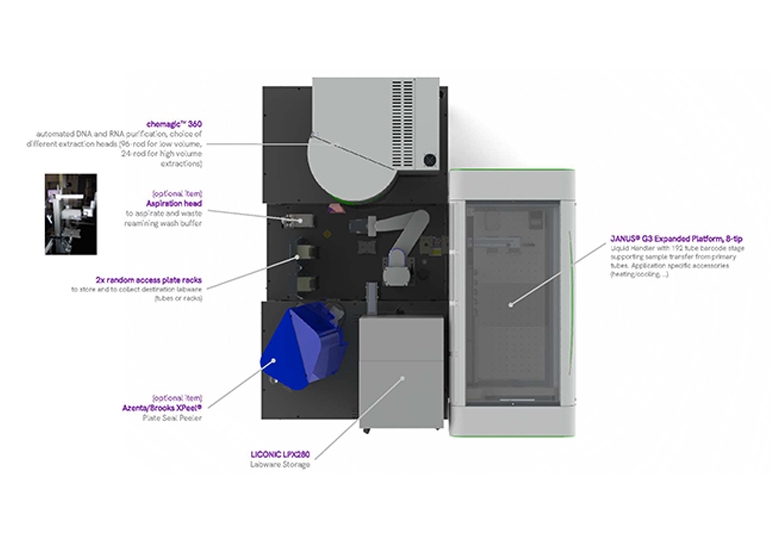
Our automation solutions allow biorepositories to standardize procedures and implement best practices ensuring sample integrity and security, increasing throughput, and decreasing costs. Flexible instrumentation modules offer flexibility in throughput, capacity and dynamic volume range, high manufacturing standards, and outstanding customer service and support.
Increasing throughput and sample security
Modular, scalable solutions address sample security requirements and changing throughput and workflow requirements to automate entire biobanking workflows.
Single source integration
explorer™ G3 workstations seamlessly integrate many of the critical biobanking processes across platforms. With integrated nucleic acid isolation, sample assessment and a modular approach for increasing throughput, a tailored explorer™ G3 workstation can be designed to align with any analytical pipeline inputs.
Sample process traceability
Improved reproducibility
Automation eliminates most human handling steps, which are a primary source of run-to-run variation. Automated solutions improve reproducibility by minimizing errors including mislabeling or misplacing samples.
Sample Tracking
These biobanking solutions facilitate sample tracking by incorporating automated barcode scanning into every step of sample processing. Samples are received by a biobank and placed into an automation solution, where they are scanned by the barcode reader which communicates with the Laboratory Information Management Systems (LIMS) and processed according to predefined work orders.
LIMS Integration
Laboratory Information Management Systems (LIMS) are necessary for biobanks which need to manage a diverse array of samples, integrate with electronic, medical, and health records and comply with relevant regulatory environments such as HTA, GCLP, MHRA, FDA 21 CFR Part 11. Compatible with all major LIMS, these automation solutions allow biobanks to easily import data into management systems.
Featured products
